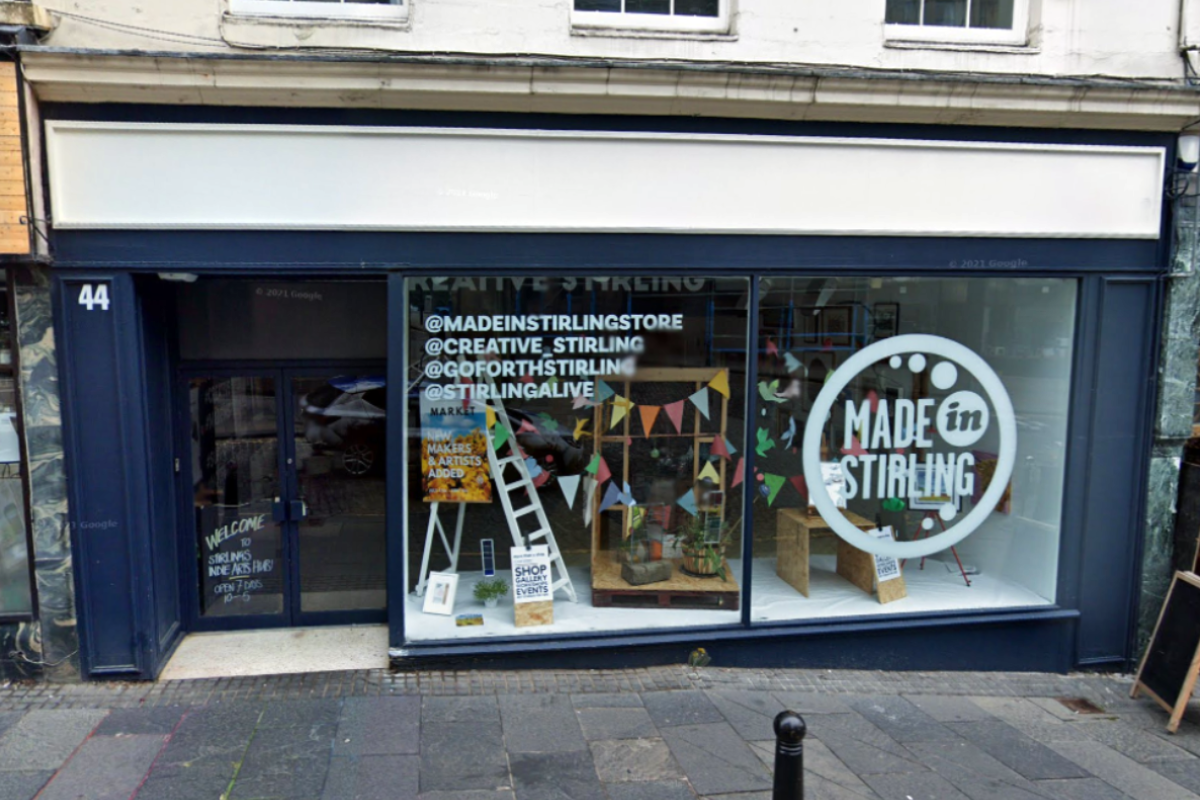
Exterior of 44 King Street, Stirling
Arts ‘integral’ to supporting communities, research finds
Team of researchers say funding for cultural community hubs needs to be addressed after evaluating the positive impact of a creative partnership in Stirling.
A team of researchers are calling for arts and culture to be prioritised in future funding decisions after evaluating the positive impact an arts organisation had on its local community during the pandemic.
The researchers, from the University of Stirling, found two organisations – Creative Stirling and social enterprise The Kitchen at 44 King Street – worked together as a cultural creative hub to support local communities and connect local people in need.
Research lead Dr Katherine Champion said the findings demonstrated that “there is a powerful conversation to be had about including arts from the get-go when talking about supporting communities”.
READ MORE:
“Arts and culture are still often seen as nice to have or as an add-on to areas of policy rather than being able to offer critical support right from the start – we hope this research demonstrates the sector’s significant role,” Champion added.
The research findings highlight that between March 2022 and October 2022, Creative Stirling and The Kitchen at 44 King Street delivered creative packs for local children, distributed Christmas hampers to families, organised free online workshops to tackle social isolation and provided advice to those unable to work due to the pandemic, including local artists.
The Kitchen at 44 King Street also set up Stirling Community Food, where excess food was offered for free, which was hosted in the Creative Stirling hub.
Dr Champion said the two organisation’s activities “were integral to people surviving and thriving during an unprecedented time of crisis”.
“This offers an important example of the power and role of arts and culture in addressing social need during a time of crisis, which other arts and cultural organisations can learn from.”
A report by the researchers adds that the visibility of Creative Stirling during the lockdown has had a positive effect on their legacy, with the organisation now receiving greater recognition within the local community and in policy circles.
Long-term funding
The researchers have put forward a series of recommendations to support creative community hubs in the future, which includes designing appropriate funding mechanisms.
Their report explains that there has traditionally been less opportunity to develop more sustainable models and practices in this area.
Moving away from short-term project funding to longer-term arrangements has been recommended by the Scotland National Partnership for Culture.
The researcher’s report say this move is “essential to maximise the impact of effectiveness of investment,” but adds that “how such models can be effectively actioned especially given the current circumstances remains hard to see".
Elsewhere, the researchers recommend giving more funding autonomy to community leaders who are attuned to local needs and protecting the physical spaces where cultural and creative hubs are housed.
“We need to look at how agencies, government and policy can help address the issues faced by cultural hubs, including access to funding and the physical spaces available to these organisations to operate from,” Champion explained.
Join the Discussion
You must be logged in to post a comment.